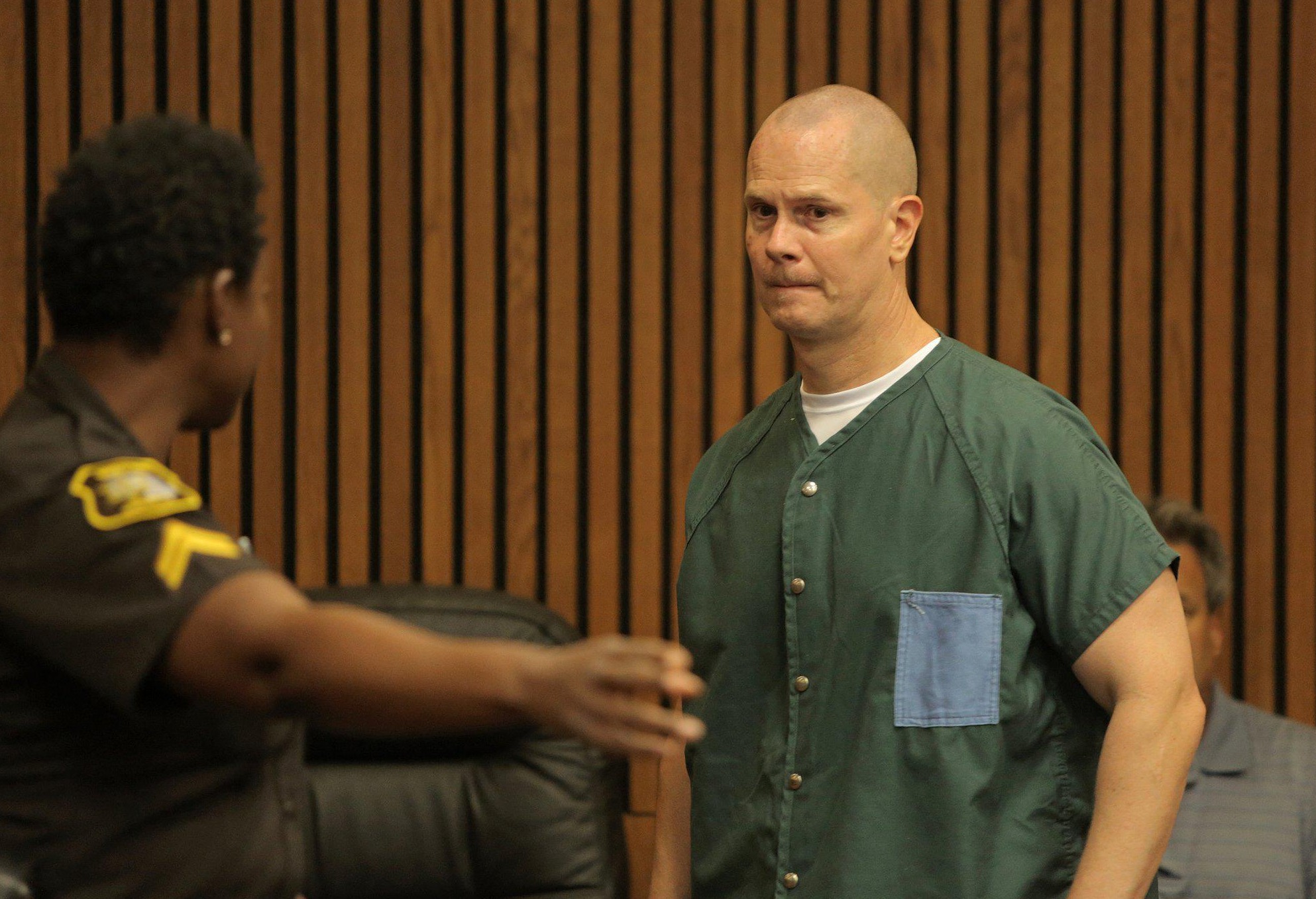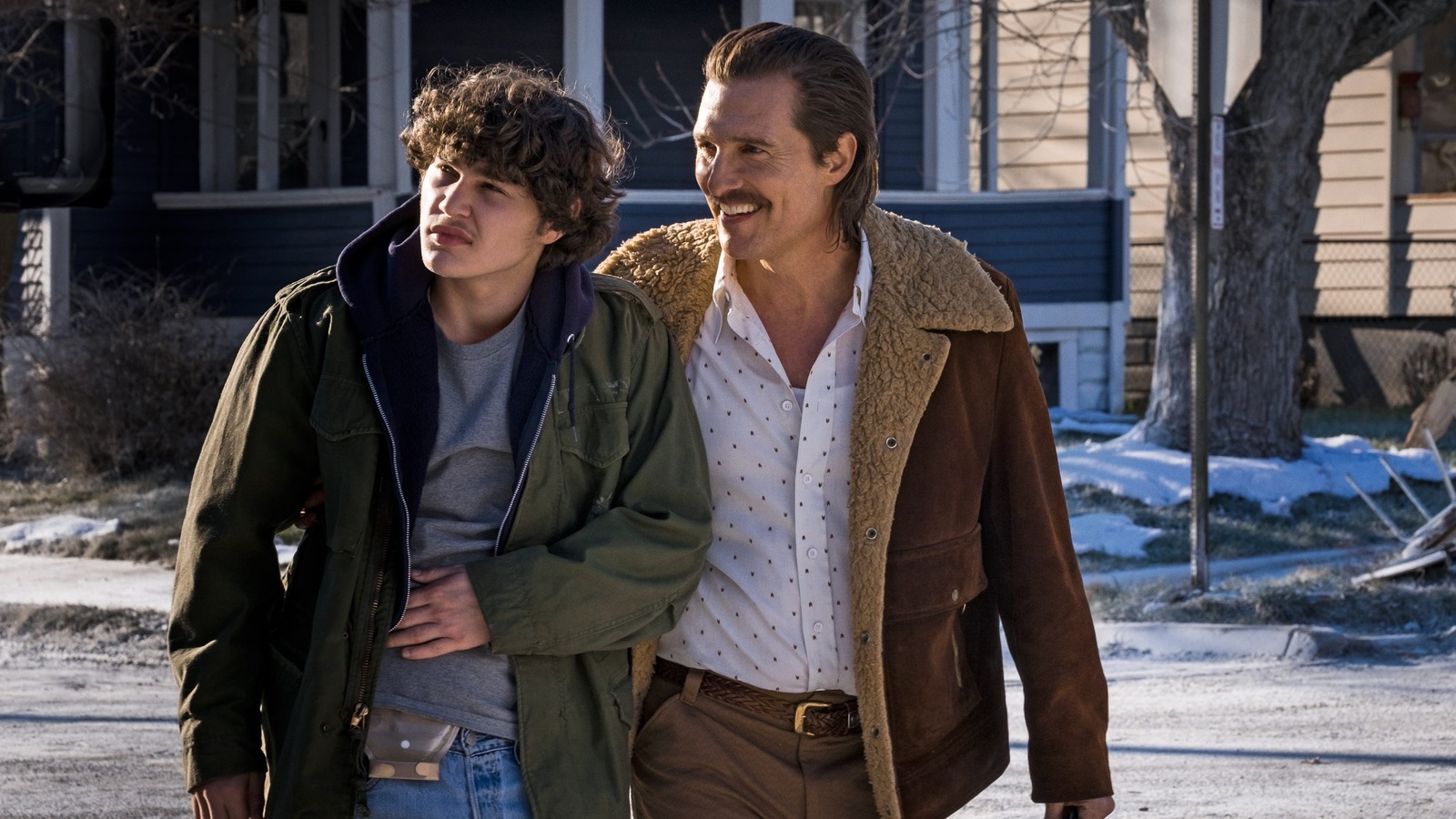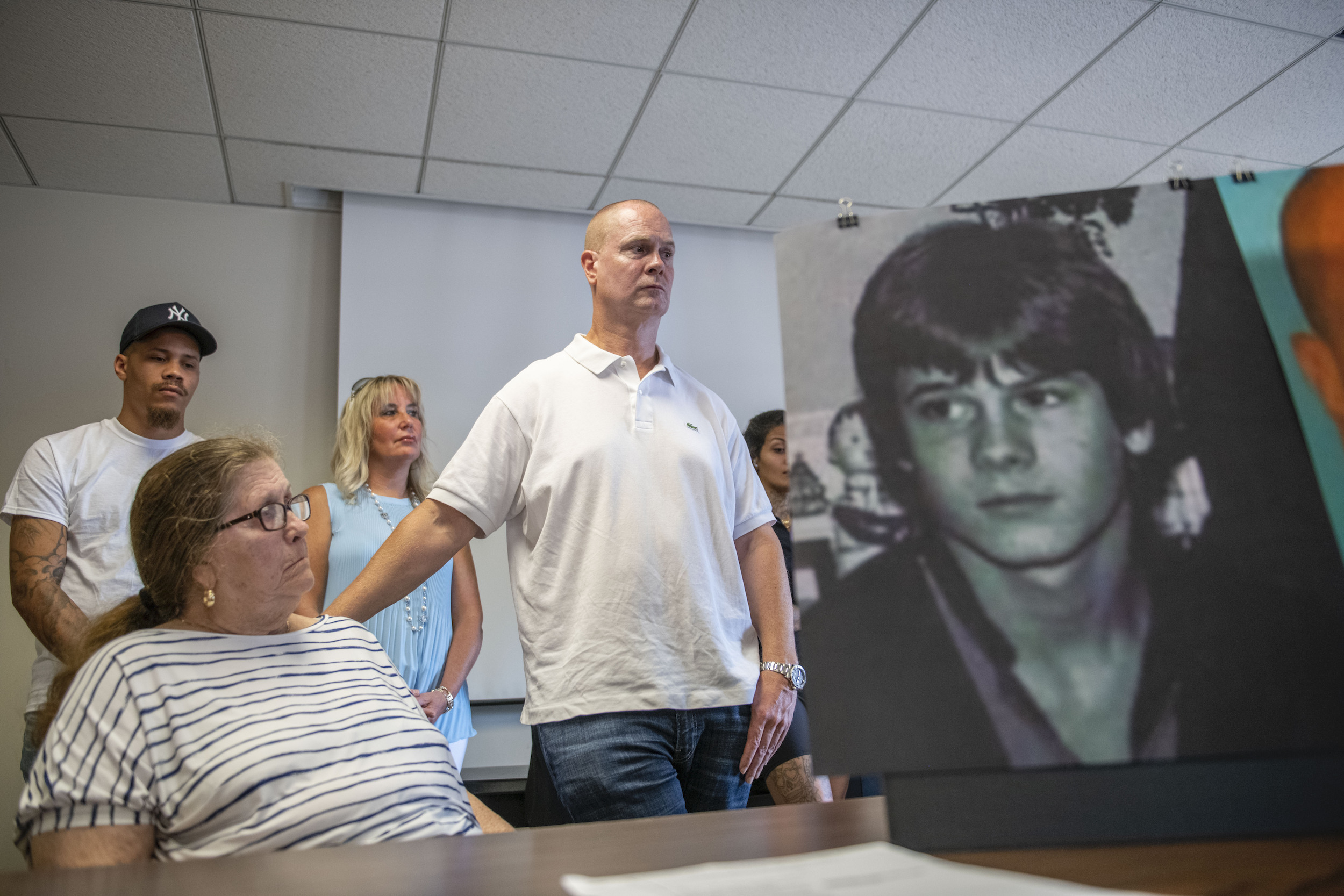White Boy Rick Children refers to the children of Richard Wershe Jr., known as "White Boy Rick," a notorious drug trafficker and FBI informant in the 1980s. Wershe Jr. was arrested and sentenced to life in prison, leaving behind several children.
The story of White Boy Rick's children highlights the challenges and consequences faced by families involved in the criminal justice system. Many of his children have had to navigate a difficult path, grappling with their father's legacy, societal stigma, and the absence of a parental figure.
White Boy Rick's children have also brought attention to the need for support and resources for families affected by incarceration. Their experiences underscore the importance of providing children with access to education, counseling, and a stable home environment, regardless of their parents' circumstances.
White Boy Rick Children
The story of White Boy Rick's children highlights the challenges and consequences faced by families involved in the criminal justice system. Their experiences underscore the importance of providing children with support, resources, and a stable home environment, regardless of their parents' circumstances.
Eight key aspects related to "White Boy Rick children" are as follows:
- Trauma: Children of incarcerated parents often experience trauma and emotional distress.
- Stigma: They may face stigma and discrimination due to their father's criminal past.
- Incarceration: Some of White Boy Rick's children have also been involved in the criminal justice system.
- Resilience: Despite the challenges they face, many of his children have shown resilience and determination.
- Support: They need access to support services, including counseling, education, and job training.
- Family: Extended family and community members can play a vital role in providing stability and support.
- Legacy: White Boy Rick's children are navigating the legacy of their father's criminal past.
- Advocacy: They have become advocates for criminal justice reform and support for children of incarcerated parents.
In conclusion, the story of White Boy Rick's children highlights the need for a multifaceted approach to supporting families affected by incarceration. By providing access to trauma-informed care, education, and stable housing, we can help these children overcome the challenges they face and reach their full potential.
Trauma
Incarceration of a parent is a traumatic event that can have a profound impact on children. They may experience a range of emotions, including sadness, anger, fear, and confusion. They may also struggle with feelings of abandonment, rejection, and shame. In addition, children of incarcerated parents are at increased risk for mental health problems, such as depression, anxiety, and post-traumatic stress disorder (PTSD).
The story of White Boy Rick's children provides a real-life example of the trauma experienced by children of incarcerated parents. White Boy Rick was arrested and sentenced to life in prison when his children were young. His children have spoken out about the challenges they faced growing up without their father and the emotional distress they experienced as a result of his incarceration.
Understanding the trauma experienced by children of incarcerated parents is important for developing effective support services. These services should focus on providing children with a safe and stable environment, as well as access to mental health care and other support services. By providing children with the support they need, we can help them to overcome the challenges they face and reach their full potential.
Stigma
Children of incarcerated parents often face stigma and discrimination due to their parent's criminal past. This can manifest in various ways, such as being teased or bullied by peers, experiencing prejudice from teachers or other authority figures, or being denied opportunities due to their parent's criminal record.
- Social Stigma: Children of incarcerated parents may be seen as "bad" or "criminal" themselves, even though they have done nothing wrong. This can lead to social isolation and rejection.
- Educational Stigma: Children of incarcerated parents may face discrimination in school. They may be placed in lower-level classes or denied access to certain programs or activities.
- Economic Stigma: Children of incarcerated parents may face economic discrimination. They may be denied jobs or housing due to their parent's criminal record.
- Legal Stigma: Children of incarcerated parents may face legal discrimination. They may be denied certain rights or privileges, such as the right to vote or own a gun.
The stigma associated with having an incarcerated parent can have a profound impact on children's lives. It can lead to feelings of shame, low self-esteem, and depression. It can also make it difficult for children to succeed in school and find employment. In the case of "White Boy Rick children," the stigma associated with their father's criminal past has been a significant challenge in their lives. They have faced discrimination and prejudice from others, and they have had to work hard to overcome the negative perceptions that people have of them.
Incarceration
The involvement of White Boy Rick's children in the criminal justice system highlights the intergenerational impact of incarceration. Children of incarcerated parents are at increased risk for involvement in the criminal justice system themselves. This is due to a number of factors, including:
- Exposure to Crime and Violence: Children of incarcerated parents are more likely to be exposed to crime and violence, which can increase their risk of being involved in the criminal justice system.
- Lack of Parental Supervision: Incarcerated parents are unable to provide supervision and guidance to their children, which can increase their risk of engaging in risky behaviors.
- Trauma: Children of incarcerated parents often experience trauma, which can lead to mental health problems and other issues that can increase their risk of criminal behavior.
- Stigma: Children of incarcerated parents often face stigma and discrimination, which can make it difficult for them to succeed in school and find employment, increasing their risk of involvement in the criminal justice system.
The story of White Boy Rick's children is a reminder of the need to address the cycle of incarceration. By providing support and resources to children of incarcerated parents, we can help to reduce their risk of involvement in the criminal justice system and improve their life outcomes.
Resilience
The resilience of White Boy Rick's children is a testament to their strength and determination. Despite the challenges they have faced, they have refused to give up. They have persevered through adversity and emerged as strong and successful individuals.
One of the most important factors in the resilience of White Boy Rick's children has been their family and community support. They have had a strong network of people to rely on, including their extended family, friends, and mentors.
The story of White Boy Rick's children is an inspiration to us all. It shows us that even in the most difficult circumstances, it is possible to overcome adversity and achieve success.
Support
Children of incarcerated parents, like those of White Boy Rick, face unique challenges that require comprehensive support services to thrive. These services include counseling, education, and job training, which play crucial roles in their development and well-being.
- Counseling: Incarceration of a parent can lead to trauma and emotional distress for children. Counseling provides a safe and supportive space for them to process their emotions, develop coping mechanisms, and build resilience.
- Education: Children of incarcerated parents may face educational challenges due to instability or lack of parental support. Access to quality education, including early childhood education, helps them catch up academically, develop cognitive skills, and prepare for future success.
- Job Training: Many children of incarcerated parents grow up in economically disadvantaged households. Job training programs provide them with skills and opportunities to secure employment, gain financial stability, and break the cycle of poverty.
In conclusion, access to counseling, education, and job training is essential for the well-being and success of children like those of White Boy Rick. By investing in these support services, we empower them to overcome the challenges they face and reach their full potential.
Family
In the case of "White Boy Rick children," extended family and community members have played an invaluable role in providing stability and support.
- Providing emotional support: Extended family and community members can offer emotional support to children of incarcerated parents, helping them to cope with the challenges they face.
- Providing practical support: Extended family and community members can provide practical support to children of incarcerated parents, such as helping with childcare, transportation, and financial assistance.
- Providing a sense of belonging: Extended family and community members can provide a sense of belonging to children of incarcerated parents, helping them to feel connected to their community.
- Providing positive role models: Extended family and community members can provide positive role models to children of incarcerated parents, helping them to learn healthy behaviors and develop positive self-esteem.
The support of extended family and community members can make a significant difference in the lives of children of incarcerated parents. It can help them to cope with the challenges they face, develop healthy relationships, and reach their full potential.
Legacy
The legacy of an incarcerated parent can have a profound impact on children. In the case of White Boy Rick's children, they are navigating the legacy of their father's criminal past, which includes both positive and negative aspects.
- Challenges: White Boy Rick's children have faced challenges due to their father's criminal past. They have experienced stigma and discrimination, and they have had to deal with the emotional fallout of their father's incarceration.
- Opportunities: White Boy Rick's children have also found opportunities in their father's legacy. They have used his story to raise awareness about the criminal justice system, and they have become advocates for children of incarcerated parents.
- Identity: White Boy Rick's children are still navigating their identities in relation to their father's criminal past. They are proud of their father's accomplishments, but they also recognize the pain that his actions have caused.
- Hope: White Boy Rick's children are hopeful for the future. They believe that they can overcome the challenges they face, and they are determined to make a positive impact on the world.
The legacy of White Boy Rick's criminal past is complex and multifaceted. It is a story of both challenges and opportunities. White Boy Rick's children are navigating this legacy in their own way, and they are determined to create a better future for themselves and their families.
Advocacy
The advocacy work of White Boy Rick's children is deeply connected to their personal experiences. As children of an incarcerated parent, they have firsthand knowledge of the challenges that children of incarcerated parents face. They have used their platform to speak out about these challenges and to advocate for reforms that would improve the lives of children of incarcerated parents.
White Boy Rick's children have been involved in a number of advocacy efforts, including:
- Speaking out about the need for criminal justice reform
- Advocating for increased support for children of incarcerated parents
- Working to reduce the stigma associated with having an incarcerated parent
Their advocacy work has had a significant impact. They have helped to raise awareness about the challenges that children of incarcerated parents face, and they have helped to change the way that people think about criminal justice reform.
The advocacy work of White Boy Rick's children is an important example of how individuals can use their personal experiences to make a positive impact on the world.
Frequently Asked Questions about White Boy Rick Children
This section provides answers to commonly asked questions about White Boy Rick's children, addressing concerns and misconceptions surrounding their experiences and well-being.
Question 1: How are White Boy Rick's children coping with their father's legacy?
Answer: White Boy Rick's children have faced both challenges and opportunities due to their father's criminal past. They have experienced stigma and discrimination, but they have also used their father's story to raise awareness about the criminal justice system and advocate for children of incarcerated parents.
Question 2: Are White Boy Rick's children involved in criminal activity?
Answer: Some of White Boy Rick's children have had involvement with the criminal justice system, but this is not representative of all his children. It is important to remember that children of incarcerated parents are at increased risk for involvement in the criminal justice system, but this does not mean that all children of incarcerated parents will become involved in crime.
Question 3: What kind of support do White Boy Rick's children need?
Answer: White Boy Rick's children need a variety of support services, including counseling, education, and job training. They also need access to stable housing and a supportive community.
Question 4: How can I help children of incarcerated parents?
Answer: There are many ways to help children of incarcerated parents. You can volunteer your time at organizations that support children of incarcerated parents, donate to these organizations, or simply be a friend to a child of an incarcerated parent.
...
Summary: White Boy Rick's children have faced unique challenges in their lives, but they are resilient and determined to make a positive impact on the world. They are advocates for criminal justice reform and support for children of incarcerated parents. We can all learn from their story and work to create a better future for all children.
For more information on White Boy Rick's children and the challenges they face, please visit the following resources:
- The White Boy Rick Story
- Prisoners' Children
- The Vera Institute of Justice: Children of Incarcerated Parents
Tips for Supporting Children of Incarcerated Parents
Children of incarcerated parents face unique challenges that can impact their well-being and development. By understanding their needs and providing appropriate support, we can help these children overcome the challenges they face and reach their full potential.
Tip 1: Provide a stable and supportive environment
Children of incarcerated parents often experience instability and chaos in their lives. Providing a stable and supportive environment can help them to feel safe and secure. This includes providing a regular routine, a safe and clean home, and access to basic necessities such as food, clothing, and healthcare.
Tip 2: Be patient and understanding
Children of incarcerated parents may exhibit challenging behaviors as they cope with their parent's absence. It is important to be patient and understanding, and to avoid labeling them as "bad" or "troubled." Instead, try to understand the reasons behind their behavior and work with them to develop positive coping mechanisms.
Tip 3: Encourage open communication
Children of incarcerated parents often feel isolated and alone. Encouraging open communication can help them to feel more connected and supported. Talk to them about their feelings and experiences, and let them know that you are there for them.
Tip 4: Connect them with resources
There are a number of resources available to support children of incarcerated parents. These resources can provide counseling, tutoring, mentoring, and other services to help them cope with the challenges they face.
Tip 5: Advocate for their rights
Children of incarcerated parents often face discrimination and stigma. It is important to advocate for their rights and to ensure that they have access to the same opportunities as other children.
Summary
Supporting children of incarcerated parents is a challenging but rewarding task. By providing a stable and supportive environment, being patient and understanding, encouraging open communication, connecting them with resources, and advocating for their rights, we can help these children to overcome the challenges they face and reach their full potential.
Conclusion
The story of White Boy Rick's children is a complex and multifaceted one. They have faced unique challenges due to their father's criminal past, but they have also shown resilience and determination in overcoming these challenges. They are advocates for criminal justice reform and support for children of incarcerated parents.
Their story is a reminder that the children of incarcerated parents are often the hidden victims of crime. They deserve our support and compassion, and we must work to create a better future for them.
Unveiling The Financial Realm Of Kelsea Ballerini: Unveiling Net Worth And Strategies
Unveiling The Private World Of Norah Jones' Enigmatic Husband
Uncover The Hidden Truth: Morgan Wallen's Height Unveiled

Who are White Boy Rick's kids? The US Sun

The Fascinating True Story Behind White Boy Rick

Informant ‘White Boy Rick’ sues feds for recruiting him as a child
ncG1vNJzZmismZjApnrApqpsZpSetKrAwKWmnJ2Ro8CxrcKeqmebn6J8uLTIrZxmmp%2BuerO1wqRknKCZobGzsc1nn62lnA%3D%3D